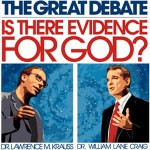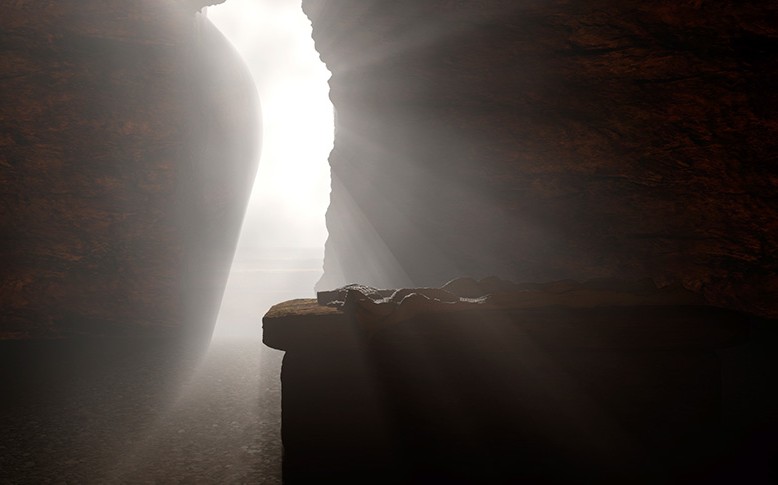 Dr. William Lane Craig recently completed a tour of Australia. Within this tour, Dr. Craig debated Dr. Lawrence Krauss in a series of three debates. However, there was not much debate on the side of Krauss. Instead, there were relentless attacks upon Craig’s character. In addition to this, Krauss did not initially grant permission for the ABC (Australian Broadcasting Company) to air the debates. What was Krauss’ fear in having the debates aired on live television? Well, it appeared that Krauss did not have an argument to bring. Krauss acted like a juvenille throughout the entire series. Sometimes, he would make silly faces as Craig was giving his talk. Other times Krauss would hit a buzzer during Craig’s talk. Has the atheist debate scheme lowered to this level? This is nothing new. Here of late, it seems like other beacons of atheism have lowered themselves to these childish tactics such as Alex Rosenberg. Richard Dawkins refuses to debate Craig but offers retorts against Craig claiming that Craig is an immoral man. Dawkins posted a nasty retort on Craig’s views of the Old Testament and the Canaanite slaughter, “And if any of my colleagues find themselves browbeaten or inveigled into a debate with this deplorable apologist for genocide, my advice to them would be to stand up, read aloud Craig’s words as quoted above, then walk out and leave him talking not just to an empty chair but, one would hope, to a rapidly emptying hall as well” (Dawkins, The Guardian). But, the series of debates were not on the Canaanites but rather a rebuttal of Dawkin’s own book The God Delusion. And if Dawkins thought Craig to be such a villain, would he not want to have a debate with Craig on the Canaanite dilemma? As I see it, there are a few signs that indicate that the intellectual integrity of the New Atheism is crumbling.
Dr. William Lane Craig recently completed a tour of Australia. Within this tour, Dr. Craig debated Dr. Lawrence Krauss in a series of three debates. However, there was not much debate on the side of Krauss. Instead, there were relentless attacks upon Craig’s character. In addition to this, Krauss did not initially grant permission for the ABC (Australian Broadcasting Company) to air the debates. What was Krauss’ fear in having the debates aired on live television? Well, it appeared that Krauss did not have an argument to bring. Krauss acted like a juvenille throughout the entire series. Sometimes, he would make silly faces as Craig was giving his talk. Other times Krauss would hit a buzzer during Craig’s talk. Has the atheist debate scheme lowered to this level? This is nothing new. Here of late, it seems like other beacons of atheism have lowered themselves to these childish tactics such as Alex Rosenberg. Richard Dawkins refuses to debate Craig but offers retorts against Craig claiming that Craig is an immoral man. Dawkins posted a nasty retort on Craig’s views of the Old Testament and the Canaanite slaughter, “And if any of my colleagues find themselves browbeaten or inveigled into a debate with this deplorable apologist for genocide, my advice to them would be to stand up, read aloud Craig’s words as quoted above, then walk out and leave him talking not just to an empty chair but, one would hope, to a rapidly emptying hall as well” (Dawkins, The Guardian). But, the series of debates were not on the Canaanites but rather a rebuttal of Dawkin’s own book The God Delusion. And if Dawkins thought Craig to be such a villain, would he not want to have a debate with Craig on the Canaanite dilemma? As I see it, there are a few signs that indicate that the intellectual integrity of the New Atheism is crumbling.
As mentioned earlier, William Lane Craig (Christian apologist, professional philosopher, and research professor of philosophy at Biola University) debated Lawrence Krauss (Atheist apologist, theoretical physicist, and professor at Arizona State University) in a series of debates in Australia. On a recent podcast of Reasonable Faith, Kevin Harris, co-host of the show, said to William Lane Craig concerning the debate in Brisbane, “The first debate is one that everyone is talking about. It became a symphony of personal attacks upon (Craig) by Dr. Krauss and it has really distracted from the issues being debated” (Craig and Harris, Reasonable Faith Podcast). The debate was on the topic, “Has Science Buried God.” Yet, Krauss insisted on attacking Craig’s integrity. Krauss did not focus on the issues at hand, but went after Craig. This is nothing particularly new. Alex Rosenberg did quite the same (although to a much lesser degree) in a previous debate with Craig. This seems to be a going trend.
But it must be asked, “Why use such tactics?” If the arguments of the New Atheists are so potent as purported, why not lean upon those arguments instead of attacking the person? In fact, the attack of a person instead of the argument is an error in logic called “ad hominem.” The phrase “ad hominem” means “against the man.” This occurs when the person has no grounds for defending one’s position and is therefore left attacking the integrity of the person. This is also a courtroom tactic. When there is little evidence to support one’s case, the integrity of the witnesses are attacked. If the witness can be shown to be untrustworthy, then their testimony is thrown out of court. However in debates, this is a bad tactic especially when an argument is on trial. I do not agree with the personal attacks on Dr. Craig. I met Dr. Craig at a conference. Although I do not know him personally, I can attest to the integrity of his work. Having met him the one time, I can say that he was very gracious and kind. I am a pretty good judge of character and I do not see him being the charlatan that Krauss and others purport him to be. But that is besides the point. The strength of Dr. Craig’s arguments are found in the sound logic contained within. Even if he were a charlatan, that does not change the integrity of his claims. Being that he is an honest person and a logically sound person, he has become dangerous for the proponents of New Atheism.
Side Note: I have seen the use of “ad hominem” attacks firsthand. First a person will argue with you on the grounds of your argument. If they cannot overcome the soundness of one’s argument, then the person will get others to attack the same argument. If the argument still stands, then the “ad hominem” attacks begin. “Ad hominem” attacks are a sign that the person does not have a solid foundation on which to stand. This is not only true in theology and philosophy, but true in all areas.
 2. Focus on the Form of Debate Instead of the Arguments in the Debate
2. Focus on the Form of Debate Instead of the Arguments in the Debate
Harris noted, “I have picked up on snippets of this that there is some coaching going on how to debate William Lane Craig. We know that he is going to be civil and he is not going to interrupt you. So take advantage of that” (Craig and Harris, Reasonable Faith Podcast). I think Harris is correct in his assessment. Multiple debaters accuse Craig of only possessing five arguments. One such debater accused Craig of this when Craig listed over eight arguments in the same debate. Regardless of whether Craig has five or fifteen lines of argument, it would appear that the accusers would attack the arguments instead of the number of Craig’s arguments. For Krauss, his tactics bordered on the ludicrous. He had a buzzer and would buzz Dr. Craig during Craig’s argument. Krauss would make obnoxious gestures during Craig’s speeches. Does this show the sign of a great intellectual or the sign of an aged child who has no better argument to bring than to use the tactics of a first-grader on a playground?
As a preacher, I have seen much of the same. Some individuals will approach the pastor and say, “I wish you had more fire in your messages,” “I wish you would preach like Charles Stanley,” or “I wish you were more like Billy Graham.” Not to be harsh, but it would seem that the person would gain much more by listening to the content of the message instead of focusing on the method of delivery. The same holds true to these debates. Much more would be gained if the debate focused on the actual argument instead of ridiculous tactics used to simply gain the “cool” factor. It is not about being “cool.” It is about being correct.
 3. Suppression of Intellectual Dialogue
3. Suppression of Intellectual Dialogue
Craig said that there was a use of “red herrings” in the debate in order to “try to move the audience emotionally” (Craig and Harris, Reasonable Faith Podcast). There is nothing inherently wrong with being a charismatic person and letting that charisma show in a debate. Krauss has a colorful, charismatic side. Can you imagine how effective Krauss would be if he were a Christian evangelist? However, the point is that the colorfulness evoked is many times a ruse to suppress intellectual dialogue. Krauss refused to have a formal debate. Why? He refused because he wanted a format in which he could bully, manipulate, and put on a public spectacle. But does such an exchange allow for solid intellectual dialogue? No. It becomes more the likes of a WWE show than it does a serious collegiate debate. Do you smeeelll what the Pastor is cooking? (My apologies to the Rock.)  This shows a serious problem with the New Atheist movement. If the tactics of Rosenberg and Krauss are indicators of what the New Atheist movement is becoming, serious searchers for truth will notice that the foundation of this movement is crumbling.
This shows a serious problem with the New Atheist movement. If the tactics of Rosenberg and Krauss are indicators of what the New Atheist movement is becoming, serious searchers for truth will notice that the foundation of this movement is crumbling.
Conclusion
I am an evangelical Christian. I make no bones about that. However, anyone who knows my testimony knows that I nearly lost my faith by the claims made by the Jesus Seminar before being exposed to the case FOR Christianity. When the case for Christianity is presented intellectually and logically and is heard with an open mind and an open heart, a person will be led to the fact that Christianity is based on truth. Christianity holds up to the test. It is endures 2,000 years after several adversaries (with the same mentality of the New Atheists) proclaimed it dead. Those adversaries are long gone while Christianity lives on.
I cannot speak for anyone else. But, if I were a seeker searching for the truth, I would be persuaded to be a Christian theist over an atheist simply by the tactics being used for atheism (or a deist at the bare minimum). If it seems like there is something that the New Atheist debaters are wanting to hide, there is good reason. It seems that they want to hide the illogical nature of atheism. Even Trey Parker, a skeptic and co-creator of the irreverent cartoon South Park said, “Out of all the ridiculous religion stories — which are greatly, wonderfully ridiculous — the silliest one I’ve ever heard is, ‘Yeah, there’s this big, giant universe and it’s expanding and it’s all going to collapse on itself and we’re all just here, just ‘cuz. Just ‘cuz. That to me, is the most ridiculous explanation ever” (Parker, ABCNews). Parker, who is no friend to religious belief and an equal opportunity offender, admits the illogical nature of atheism. Even if his point is sarcastic (which it doesn’t seem to be the case in this interview), Parker is correct in that the atheist belief that the design, structure, and existence of all things is simply based on an accident is a difficult idea to digest.
The fact is: most atheist debaters cannot stand up to William Craig, John Lennox, and Ravi Zacharias on their intellectual grounds of logic alone. They must use other tactics. This shows a weakness not so much in the debaters for atheism, but rather in the arguments for the New Atheism. Like the Berlin Wall, the intellectual integrity of the New Atheism is crumbling. This does not mean that there will not continue to be New Atheists who are just as dogmatic as ever. But what this does present is a great irony; the irony that the New Atheists hold to their belief by faith…a term that is despised in the New Atheist community.
Bibliography
ABC News. “Secrets of ‘South Park.’ (September 22, 2006.) Accessed September 30, 2013.
Craig, William Lane, and Kevin Harris. “The First Debate with Lawrence Krauss in Australia.” Reasonable Faith Podcast. (September 30, 2013). Accessed September 30, 2013.
Dawkins, Richard. “Why I refuse to debate with William Lane Craig,” The Guardian. October 20, 2011. http://www.theguardian.com/commentisfree/2011/oct/20/richard-dawkins-william-lane-craig. (Accessed September 30, 2013).






[…] Signs that the New Atheist Movement May be Collapsing- A post which examines the intellectual collapse of the New Atheism. I think the most fascinating point is the third, that New Atheists are suppressing intellectual dialogue. […]
[…] Signs that the New Atheist Movement May be Collapsing- A post which examines the intellectual collapse of the New Atheism. I think the most fascinating point is the third, that New Atheists are suppressing intellectual dialogue. […]
I’ve heard craigs arguments and find them not only unconvincing, but oftentimes morally bankrupt as well. Makes me sad to see otherwise smart people get taken in by such simple nonsense that craig peddles.
The fact is that logic and science confirm Craig’s arguments. Check out my article on the Kalaam Cosmological Argument. Craig is not the only intellectual who promotes the arguments that he presents. The causal relationship is the fundamental of science. So to think that the material universe can appear from nonmaterial things is nonsensical. Again, I cover these things in my article on the Kalaam Cosmological Argument. Thank you for your comment nonetheless. And I hope that you reexamine the arguments not only from Craig but from others like him.
Blessings.
The kalam is one of the weakest arguments he uses. I’ve never heard a version of it that doesn’t stand up against reasonable criticisms that can be easily found by laymen.
Material comes from nonmaterial all the time, check up on vacuum theory. Unless you meant something else by material then I am using.
“The causal relationship is the fundamental of science.”
You are aware that there are regions where causality itself breaks down right?
The Kalaam Cosmological Argument is an argument that has never been successfully rebutted. If you are able to offer such criticisms, I am sure that Craig would love to debate you in a public forum sometime. The fact is that no atheist debater has been successful against his argument as far as I am concerned. Vacuums are not “nothings,” but are in fact “somethings.” “Nothing” philosophically speaking is the absence of anything. The Big Bang Theory promotes that before the universe existed, there was nothing material in this universe. There were no laws of physics. There were no material things whatsoever. The reason scientists are even able to postulate that anything is what it is comes from the fact that the universe had a cause…a starting point…a beginning. Krauss’ nothing is not really nothing, but something. Something cannot be nothing. Nothing cannot be something. Vacuums are somethings…so the argument fails. Here’s the deal: in Vilenkin, Guth, and Borg’s mathematical theorem, it is shown that all material universes (even a multiverse) must have a beginning point. Therefore, it begs that something beyond the scope of the material exists. This is inescapable. If the cause/effect relationship is demolished, then science would be impossible. It would be impossible to know anything about anything. This is the most troublesome thing about atheism. At the very least, one would be inclined to be an agnostic leaning towards deism if honest.
“The Big Bang Theory promotes that before the universe existed, there was nothing material in this universe. ”
There isn’t any evidence of philosophical nothing, so the argument that nothing can exist, ever existed, or cannot produce something can not be evaluated. So the premise fails on a basic misunderstanding of science.
” If the cause/effect relationship is demolished, then science would be impossible”
This also is not true… else there would be no work able to be done on this era of history.
“This is the most troublesome thing about atheism. At the very least, one would be inclined to be an agnostic leaning towards deism if honest.”
I’m an agnostic atheist… the terms aren’t mutually exclusive.
Basically the argument falls apart with even a lay understanding of the field being referenced and you seem to have some misconceptions about the word atheist.
There are several things that could be said of your comment. You said that there isn’t any philosophical evidence of “nothingness.” Then, what do you do with the mathematical concept of “zero?” Zero represents nothingness. Everything is not subject to the parameters of science. Science cannot scientifically prove the necessity of science. Now, you also claim that you are an agnostic atheist. This seems to be a misnomer, too. If you are an atheist, then you believe that God absolutely does not exist. If you are an agnostic, you are open to the possibility, but claim no knowledge of God’s existence. Of the two, agnosticism is far more preferred in my opinion. However, it does not seem that one could be both. Likewise, you cannot claim that something is “nothing.” This breaks the law of non-contradiction and even perhaps the law of excluded middle. The question must be asked, does the argument really fall apart or do you wish that the argument would fall apart? This is the problem with most New Atheist debaters. They really prefer the latter.
” You said that there isn’t any philosophical evidence of “nothingness.””
Not what I stated, please reread that portion carefully.
Math represents concepts, not measurable reality. We use concepts to model reality (not the same as the concept actually existing).
“If you are an atheist, then you believe that God absolutely does not exist”
No… atheism merely means the lack of belief in a god. The assertion that a god doesn’t exist is a gnostic or strong atheist, a position I do not espouse or think is reasonable.
I’ve got a picture that can somewhat explain the concept of positions of knowledge and belief and how they are not mutually exclusive.
http://reason-being.com/wp-content/uploads/2012/12/chart.png
Physics uses a different definition of nothing because philosophical nothing is not known to exist, so physical nothing has a different definition in science so that they can deal with the concepts they are referring to whether you understand it or not.
The argument falls apart because it fails to understand science.
First of all, let me say “Thank you” for your gracious conversational style. Agnostics like you are a pleasure to have a dialogue. Some act in an obnoxious fashion…as I am sure some of us theists do.
Now, on to your post. Your claims about mathematics being a concepts defaults your argument because theoretical physics is a conceptual science. As of right now, there is no way with certainty to know some of the things being purported by atheist physicists as they are too bringing forth conceptual physics which relies greatly on mathematics. You are correct in saying that scientifically “nothing” is actually something. But you see that is the problem. The “nothing” is being purported to be actual “nothing” when the “nothing” purported is actually “something.”
Your chart is nice. But faulty. The chart makes the assumption that the atheist can know with 100% certainty that God does not exist. However to be able to know such a thing would place the person in a godlike status. This is impossible due to the finite nature of humanity, therefore this is not possible. If God revealed God’s self, then it would be possible to know that God exists.
Let me go another route with this conversation. Suppose for a moment that I am correct in my assertion that God exists. If God does exist and God brought forth a universe from non-existence (as the Bible indicates), then one would find if going back to the origins of the universe a universe that was able to come from nothing. That does not change the enigma that we are still here and there is a reason to the design and teleological end to nature. Even if one is a Darwinian evolutionist, one would have to ask, “Why does it seem that there was an end in mind?” The Kalaam Cosmological Argument in no way falls apart. It is supported by the findings. If you take the time to review Craig’s works, you will find that his assertions are based upon the work of scientists and mathematicians.
I know that I am not going to persuade you and you are not going to persuade me. But, do look into Craig’s works. You may be surprised to find that Craig is not the charlatan that he is purported to be. Even greater than that, be open enough to consider that maybe there is a loving God in the universe. This is not something in which to shutter. But, if there is a loving God, then that means that every person has a purpose. It also means that this life is not the end. For me, that is a hope that no atheist philosopher can bring.
Regardless, thank you for your professional dialogue in this matter and blessings to you my friend.
“theoretical physics is a conceptual science”
no… theory doesn’t mean the same in science as it does to common english speakers. your lack of scientific vernacular is self evident here, which is probably the source of a great deal of misunderstandings on your part. honestly i’ve tried to correct quite a few errors in every one of your posts. after this i will probably stop responding, i don’t think you understand the topics well enough to justify any stance based on them at all.
” But you see that is the problem. The “nothing” is being purported to be actual “nothing” when the “nothing” purported is actually “something.””
That isn’t a problem at all. Science doesn’t deal with philosophical nothing at all because we’ve never found it, and it isn’t a useful idea in the least. Philosophical nothing isn’t even a scientific idea.
“The chart makes the assumption that the atheist can know with 100% certainty that God does not exist.”
No it does not… the chart states that some people hold that position. A distinction that went unnoticed.
“Suppose for a moment that I am correct in my assertion that God exists” This is called presuppositionalism. You don’t start any logical argument with a premise that is unfounded. It is a poor line of reasoning and has been picked up lately by people that fail in very basic understandings of logic to try to wiggle premises in that shouldn’t be there.
“That does not change the enigma that we are still here and there is a reason to the design and teleological end to nature.”
This would need to be proven as well…
“I know that I am not going to persuade you and you are not going to persuade me”
This is flatly untrue. I accept reasonable evidence regardless of the conclusion drawn. I was lead down an uncomfortable logical path when I was deconverted from unfounded ideas. I didn’t choose not to believe, I was forced by the arguments, logic, and evidence. If you had these things in your favor you could convince me, but you have handed me the same arguments and, no offense, poor understandings of science and logic I’ve always encountered. It is for that reason that I remain unconvinced.
I’ve heard WLC advocate for the death of infants to be an infinite good amongst other logically profound witless statements. I’ve no reason to take a person with a theology degree from an obscure unaccredited christian academy seriously, especially one that uses poor and debunked arguments such as his.
” For me, that is a hope that no atheist philosopher can bring.”
Atheism contains absolutely no philosophy whatsoever. This is a hard concept for many theists to grasp. Every atheist is able to hold many different views about reality aside from one… they cannot be an atheist and believe in a god (regardless of position of knowledge as the picture explains).
Once again I will reiterate/recap two particular points. If you had evidence I would believe in a god (probably deism as the leap to a specific personal deity is patently absurd for additional reasons I won’t go into with you). Secondly, I won’t be replying. Your posts are filled with so many misunderstandings of science and basic logic on many levels that I don’t really consider this conversation productive. I find it sad that you hold ideas that are so wildly unbacked and are not able to be convinced. This is a bullheaded position and is not worthy of honest reasonable discourse.
I hold two hopes for you as well, that you continue to learn about the deep science that you do not understand well enough to form opinions on, let alone draw conclusions from. Also that you are more willing to question your own beliefs lest you stagnate and become set in ways that may not be (and I am quite certain) founded as strongly as you think they are. Set out to prove yourself wrong in everything you can and you stand to learn the most. Goodbye and good luck to you.
Well up until this point, you have been gracious. Nonetheless, I will not respond back the the intrinsic ad hominem attack to my intelligence that you seemed to possess in your article. I will say a few things: one, you claim things that my ideals are “wildly unbacked” and “bullheaded” but fail to show why. Due to the tensions that are developing, this will be the last post for awhile to allow cooler heads to develop…because, again, you have been gracious up until this point. However, this is not uncommon. It seems that most conversations lead towards this hostility (as mentioned in the article).
Two, I will admit that I do not understand everything about science. But, I doubt you do either. The things that have been posted in my articles have been documented heavily. Note that Vilenkin is an agnostic and still shows the necessity of the beginning of the material universe which is telling. I will state that I know much more about physics and quantum physics than you give me credit. But, we’ll leave it at that for the moment.
Third and finally, everyone must acknowledge the absurdity of the core of atheism…even you. For atheists will admit that everything in the material universe (non-living things) gave rise to all the structure, processes, design, and complexity to the universe with no directing force (or Mind if you will) to guide it and develop it. Atheists ONLY think like this when it comes to theological issues. For no one in their right mind would believe that the electronic device in which you are reading this statement came into existence and developed on its own with no engineer and no outside force. It is ludicrous to its core. Again, no atheist thinks that things come into being on their own except when it comes to the origin and development of life. It seems to me that there is a bias in this regard: a bias no so much against the religious person, but a bias against God. You mentioned that a person should question their beliefs. I did, have, and found consistently that Christian theism stands strong. This is not to say that there are not issues that need to be addressed and certainly does not mean that Christians have everything correct. But, it does mean that the Christian belief is founded on sound logic and has stood the test of time.
I do want to end our conversation on a positive note. You have been very gracious for the majority of your comments. Again, thank you for the dialogue and I hope that I have left you with something to think about in the end. It sounds like you are a very intelligent person and I wish you nothing but the best.
Again, blessings to you my friend.
Wait…I’m sorry. When I spoke about your chart, I did not see the paragraph that you wrote concerning gnostic atheists stating that gnostic atheism is unreasonable. I see what you are saying now and I agree with you concerning your chart. My apologies. I would add that any belief system (something that one holds is true) is a philosophical system. It seems odd that a person would claim to believe something that they claim is not a belief.
Regardless, thanks again for your professional dialogue. Again, blessings to you my friend.
Are there any videos of this debate? I’d like to watch it?
I’m really not sure. Check http://www.reasonablefaith.org. My understanding is that Krauss was a real stickler as to what he would clear.
There are.
The first dialogue http://www.youtube.com/watch?v=-b8t70_c8eE
The second http://www.youtube.com/watch?v=V82uGzgoajI
The third http://www.youtube.com/watch?v=7xcgjtps5ks
Here you go. If you scroll down this page a little bit, you’ll find all three parts.
http://www.youtube.com/channel/UCt1YTYKDW8f5s5q9McoHJ_Q?feature=watch
Brian, nice job with this piece!
I think you’ve got it right. This is fairly prophetic, but philosophically, the Christians are winning the day.
I think you’ve got it right. This is fairly prophetic, but philosophically, the Christians are winning the day.
[…] Signs that the New Atheist Movement May be Collapsing. […]